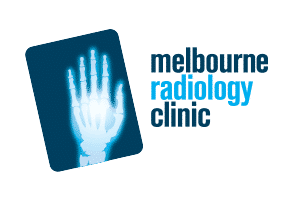Multi-Slice Low Dose CT Scan.
Fact Sheets | Diagnostic Imaging
Low Dose CT Scan.
Introduction
A CT scan (or computed tomography scan), previously also referred to as a CAT scan, is a test that uses an X-ray machine that spins around the patient to obtain detailed images known as cross sectional imaging.
During a CT Scan many images of the body are produced as if the body had been sliced and turned onto its side for viewing. Modern CT scanners can produce multiple slices of the body in one single rotation and as such are now referred to as Multi-Slice or Multi-Detector CT scanners. The sophisticated computer within the CT scanner is then able to stack these slices together to create a 3-Dimensional image of the body part that has been studied.
CT scanning is an excellent medical tool that is used to detect a whole range of disorders and can be used to scan most parts of the body. In particular, it may be used to diagnose subtle fractures, tumours, tiny kidney stones, strokes and even narrowing or blockages of arteries. CT can also be used to look at the lungs, major body organs and bowel.
The CT equipment used at Melbourne Radiology Clinic is the latest generation Siemens ultra-low dose CT scanner introduced to the clinic in 2019.
Preparation
- Spine (cervical, thoracic, lumbosacral)
- Extremity (hand, wrist, elbow, shoulder, hip, knee, ankle, foot)
- Kidneys-Ureter-Bladder – “KUB” (typically looking for kidney stones)
- Sinus/Facial Bones
- Most Brain scans
- HRCT Chest (note: If a standard CT chest or CTPA is also requested, these latter two require CT Intravenous dye and hence the need to fast for 4 hours).
Scans which require fasting 4 hours prior to examination
Unless otherwise specified at the time of booking, the following scans need an injection of a dye known as intravenous (IV) contrast (see additional information below) and therefore require fasting for 4 hours prior to the examination:
- Neck
- Chest
- Abdomen and Pelvis (also must arrive 30 minutes before appointment to drink 1L of water).
This include CT examinations dedicated to liver (“triphasic liver”), pancreas and kidneys scans - All Angiograms
- If you are to undergo an examination that requires X-ray dye in conjunction with another that does not (for example, a CT of the lumbar spine and CT of the abdomen and pelvis), then you must also fast for four hours.
FEMALE PATIENTS

It is possible that an ultrasound or MRI scan may provide similar information and therefore be used as a substitute. Please inform our clinic if this situation applies to you.
Procedure
CT SCAN
Patients undergoing a CT angiogram, CT of the neck, chest, abdomen, pelvis and spine will be asked to be changed into a gown.
Patients undergoing a brain, dental, facial bones, sinus, wrist, elbow, foot, ankle or knee CT scan do not need to change.
You will then be placed onto a table that will position you within the scanner. You must lie still during the scan as movement will blur the images, similar to when a moving object blurs a picture when taking a photo.
A series of planning scans will be performed at the start which will localise which body part is to be imaged. The main part of the scan, which is when the images used for diagnosis are obtained, then follows and is usually over within a minute or two, sometimes within several seconds.
Depending on your examination, you may be asked by an automated voice to hold your breath.
An injection of X-ray dye, known as contrast may need to be administered through a small plastic tube which has been inserted into an arm vein. Again, this depends on the examination that is being performed, however as a general rule, this is required for most CT examinations of the neck, chest, abdomen and pelvis. A CT scan looking for kidney stones only does NOT need this injection.
CT Intravenous Contrast.
If you are to be given contrast, please refer to Melbourne Radiology’s fact sheet and consent form relating to CT Intravenous Contrast.
Otherwise, you will be first provided with an information sheet when you arrive at Melbourne Radiology Clinic detailing the risks and benefits of the dye. This is then followed up by a brief questionnaire. The dye will only be given once you give your consent (permission) to do so, which will need to be formally documented on the information sheet with your signature.
If it has been recommended to you by the staff at Melbourne Radiology Clinic that your scan requires dye it is because the information obtained during a scan with the dye yields significantly more information. We do understand however that no one likes needles, so if you have a particular objection to a needle or the dye, then naturally we may perform the scan without it.
Patients not administered contrast may leave immediately. Once you leave the clinic, you may resume normal activities and diet.
Results &
Follow-Up
One of Melbourne Radiology Clinic’s specialist radiologists, a medical doctor specialising in the interpretation of medical images for the purposes of providing a diagnosis, will then review the images and provide a formal written report. If medically urgent, or you have an appointment immediately after the scan to be seen by your doctor or health care provider, Melbourne Radiology Clinic will have your results ready without delay. Otherwise, the report will be received by your doctor or health care provider within the next 24 hours.
Please ensure that you make a follow up appointment with your referring doctor or health care provider to discuss your results.
Your referring doctor or health care provider is the most appropriate person to explain to you the results of the scans and for this reason, we do not release the results directly to you.
Reminders
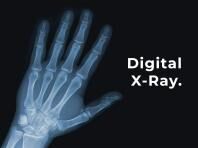 Digital X-Ray – Patient Fact Sheet
Digital X-Ray – Patient Fact Sheet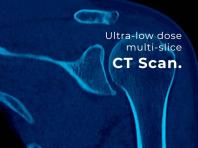 Ultra-Low Dose CT Scan – Patient Fact Sheet
Ultra-Low Dose CT Scan – Patient Fact Sheet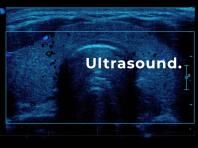 Ultrasound – Patient Fact Sheet
Ultrasound – Patient Fact Sheet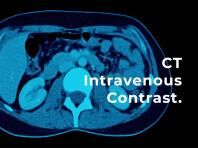 CT Intravenous Contrast & Consent – Patient Fact Sheet
CT Intravenous Contrast & Consent – Patient Fact Sheet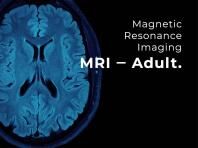 Magnetic Resonance Imaging (MRI) – Adult – Patient Guide
Magnetic Resonance Imaging (MRI) – Adult – Patient Guide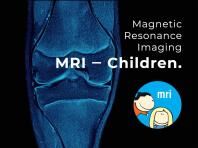 Magnetic Resonance Imaging (MRI) – Children – Patient Guide
Magnetic Resonance Imaging (MRI) – Children – Patient Guide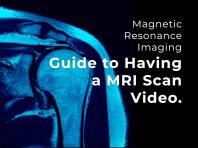 What To Expect When Having A MRI – Video
What To Expect When Having A MRI – Video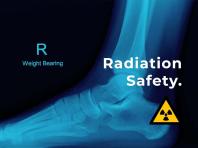 Radiation Safety – Patient Fact Sheet
Radiation Safety – Patient Fact Sheet
